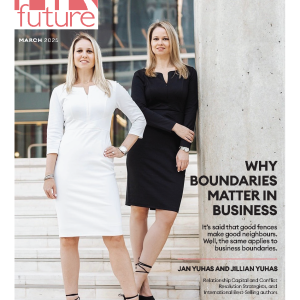It is a mistake to think that middle management is hurting your business in some way when in fact it can be the true competitive edge in today’s world.
It is often said that management and leadership are not the same. One is predominantly policy-driven, the other, values-driven. And not long ago, companies considered doing away with middle managers altogether, for the sake of agility. They were seen as agents of stagnation, blockers of change, the “frozen middle”.
Dating back to the industrial revolution, management could be seen as anachronistic in the business world of today – a bit like a rolodex in an i-store, completely out of place. Elon Musk hates it. In a now infamous email he sent to everyone working at Tesla, the firebrand CEO said he believed management greatly impedes communication.
By far the most common way [that information flows within companies] is chain-of-command, which means that you always flow communication through your manager. The problem with this approach is that, while it serves to enhance the power of the manager, it fails to serve the company.
To a certain extent he is right. Old management styles do fail today’s organisations, where a complex, fast-changing environment insists on agility, creativity, rapid prototyping, and innovation, and not only on the area of internal communication. The old management style, the frozen middle, lacks empathy, and resists change. The frozen middle clings to policy and distrusts any notion of the employee being allowed to make decisions.
However, mid-level managers can play a vital role in future-proofing an organisation. Middle managers – the non-HR and non-C-suite leaders – are often the cornerstones of employee engagement efforts and hold considerable decision-making power and influence with employees. This makes them perfectly placed to take organisations into new realms of efficiency and productivity, to get them humming with positive excitement and singular purpose. However, to do this they need to develop the right skills to make them more effective and successful in the modern workplace. Two of the most important skills to look at are empathy and analytical ability.
The empathy dividend
Considered a soft skill, empathy is gaining a lot of press these days for the power it has to reinvigorate companies. It seems the ability to walk a mile in someone else’s shoes, to relate to their motivations and drives, is key to unlocking potential in the workplace and gaining insight into the shifting demands of the marketplace.
For Microsoft CEO, Satya Nadella, it is a pivotal quality to have. “My passion is to put empathy at the centre of everything I pursue, from the products we launch, to the new markets we enter, to the employees, customers and partners we work with.”
Belinda Parmar, CEO of The Empathy Business, said recently that the top ten companies in the latest Harvard Business Review Global Empathy Index “increased in value more than twice as much as the bottom ten and generated 50% more earnings.” Organisations that lack empathy struggle to engage with their employees and customers alike and, as a result, are not innovative.
Unengaged employees are expensive employees. Research by Momentum Corporate shows that 30% of employees in South Africa go to work but do very little. It’s called “presenteeism” and it is costing local businesses almost R90bn each year. According to the Momentum report employees are distracted by personal and financial concerns; they are constantly under stress, suffer anxiety and live unhealthy lifestyles. Managers who lack empathy tend to ignore or punish this rather than try to solve the issue with support and listening.
An EY.com study titled Global Generations: A Global Study on Work-life Challenges Across Generations, found that 71% of respondents would leave “a work environment that does not encourage teamwork”, and 69% would leave because of a “boss who doesn’t allow you to work flexibly”.
Healthy company cultures are based on trust, honesty, and open dialogue and are led by empathetic managers who try to reach out to struggling employees and show them that their contributions, time, and sacrifices are acknowledged and valued. Empathetic managers create environments where support and growth are as important as sales.
Making sense of complexity
On the other side of the spectrum, managers also need to be razor-sharp and hone their analytical skills. Ubiquitous high-speed mobile internet, artificial intelligence, the widespread adoption of big data analytics, and cloud technology, are changing the game completely. This is industry 4.0 and the manager who doesn’t know how to navigate this volatile, uncertain, complex and ambiguous (V.U.C.A.) world could justifiably be sidelined.
At present managers use more than half of their time on administration, and very little time on strategizing according to an Accenture survey. This is a hangover from old management styles. To be of value in the world of change, management needs to pick up its head from the paperwork, look around and make sense of the complexities and ambiguities of business in this century, and then act to harness them.
It is a lot to deal with, and the complexities are so staggering it sometimes feels like no-one knows exactly where it is all going. In the recently published Deloitte Millennial Survey, which surveyed 10,455 millennials and 1,844 Gen-Z, both generations were shown to feel unprepared for industry 4.0, however, management can’t afford to be.
Managers need the skills to enable them to sift through massive amounts of data, read subtle cues in society that hint towards shifts in expectations, and constantly re-assess values, products and services, and what the workforce of the future will look like. If they can do this, they will be a great asset to any organisation.
If he had fired all the managers at Tesla, Elon Musk might have fixed his company’s communication flow problem, but he would also have lost a powerful tool. Managers play an invaluable role in instilling company values, nurturing employee potential, and reading the signs in the maelstrom that is the business environment today.
Brian Simelane is course convenor for the UCT Graduate School of Business Programme for Management Development in Johannesburg.

























